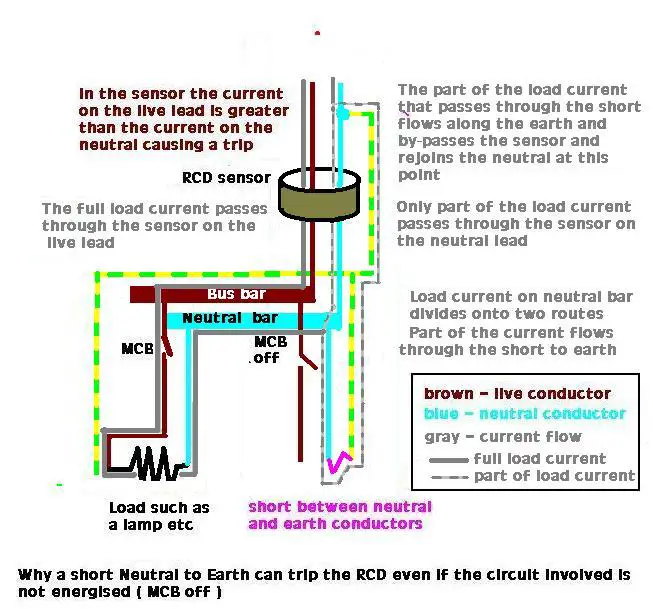Could you expand on that, i.e. what a Live-Neutral imbalance is, in the context of a loose connection, how it gets created and where the balance of the current goes, and how/why?
"If there is a difference between the electrical flow in on the live line and out on the neutral line something is wrong; the electricity is
(presumably) flowing out of the circuit somewhere, but where?"
There's no "presumably" about it, even in red

Electrical current cannot disappear. If there is a difference between the L and N current, then the difference
must have gone somewhere - hence BAS's question..
Loose connection increasing resistance through, well, being loose, becoming corroded (coated). Folks always tighten the live, but only tighten the neutral. Mostly loose neutrals in c.u's etc. cause the burning out/start the fires, unless of course the rcd/mcb gear is faulty to start with.
All quite true - but, again, irrelevant to the creation of L-N current imbalances. If the neutral connection(s) are loose and 'high resistance', L and N currents will still be identical (maybe measurably a little lower than without the loose connection), unless there is some leakage 'to somehere else' from somewhere in the circuit - hence, again, BAS's question.
Kind Regards, John


